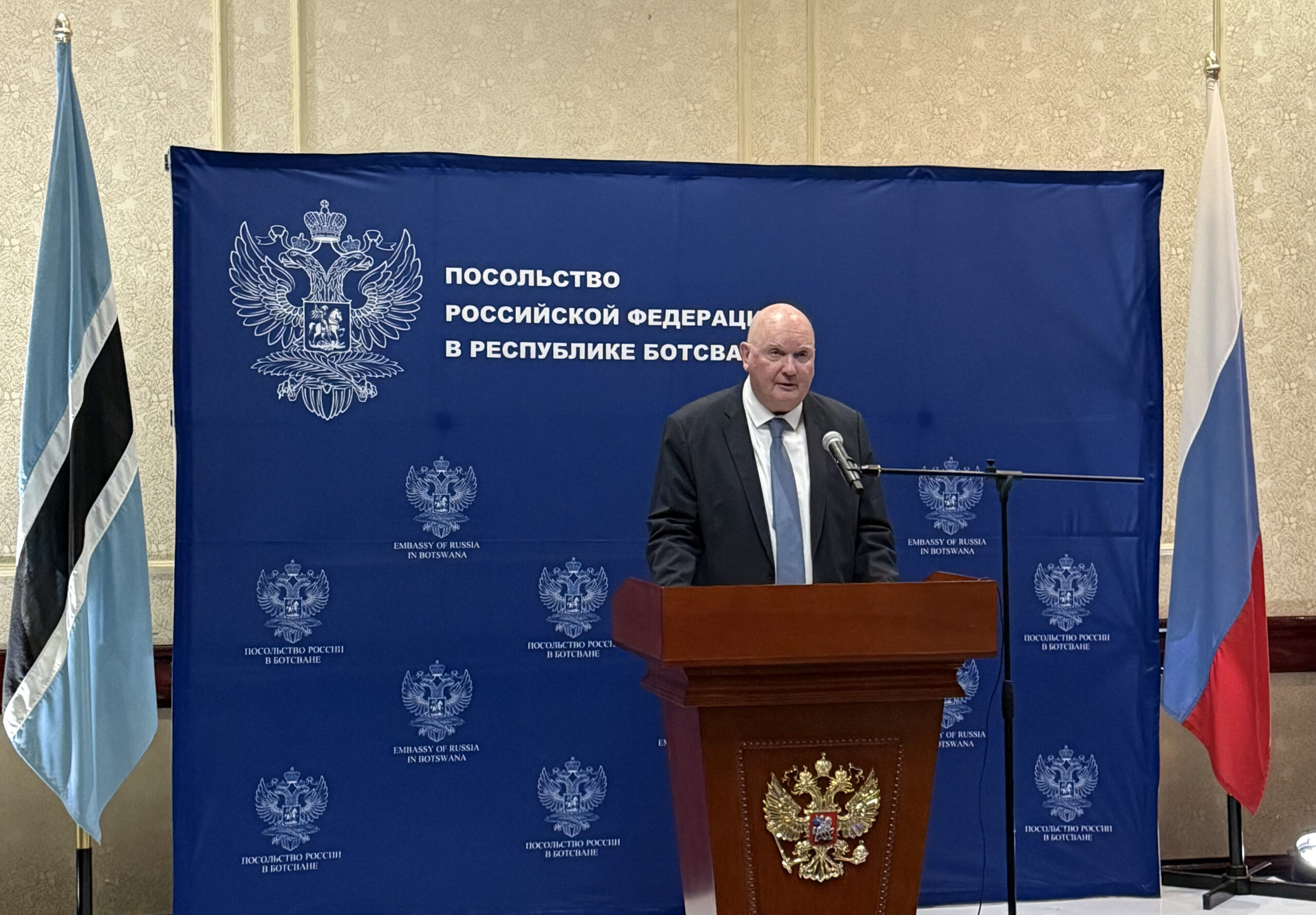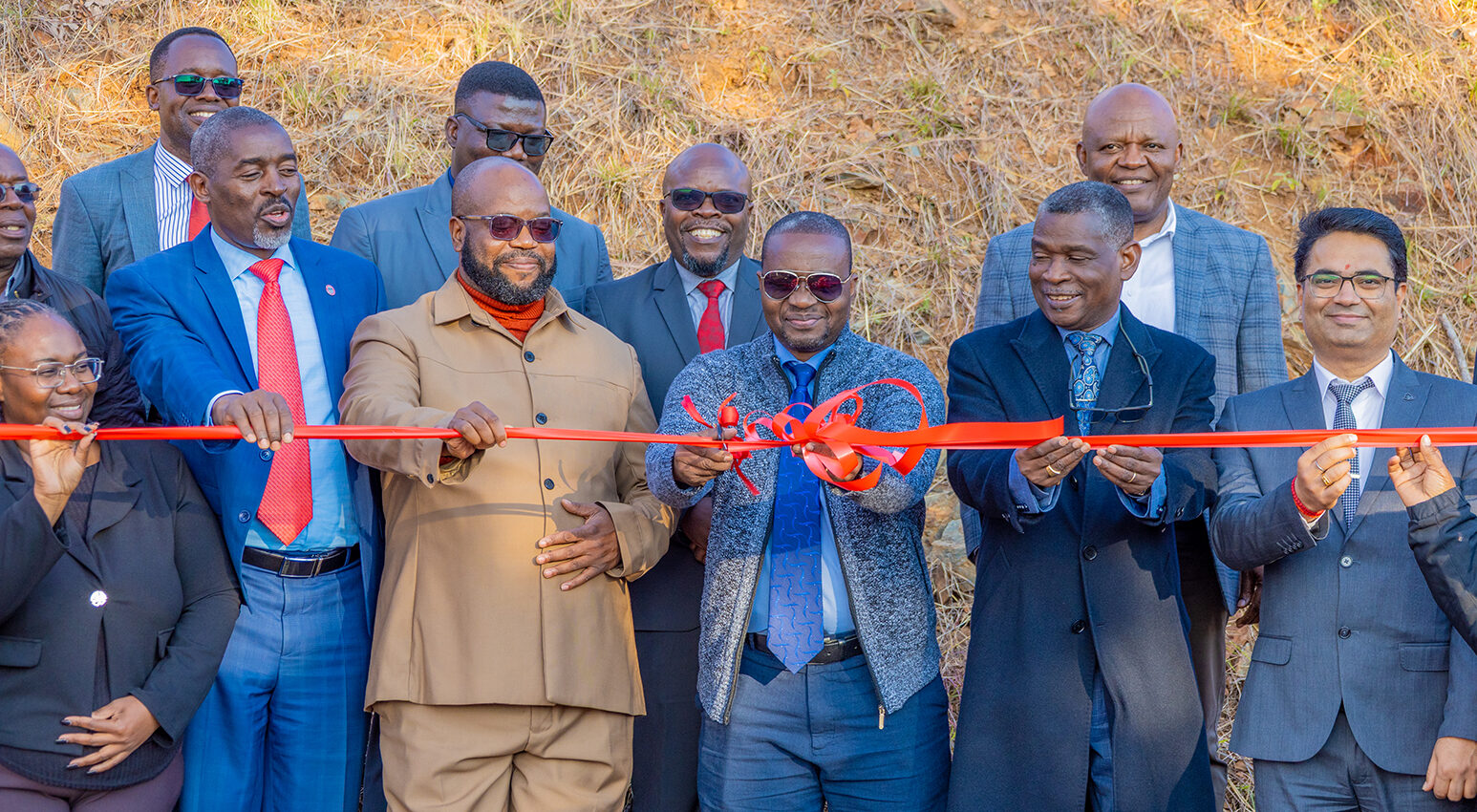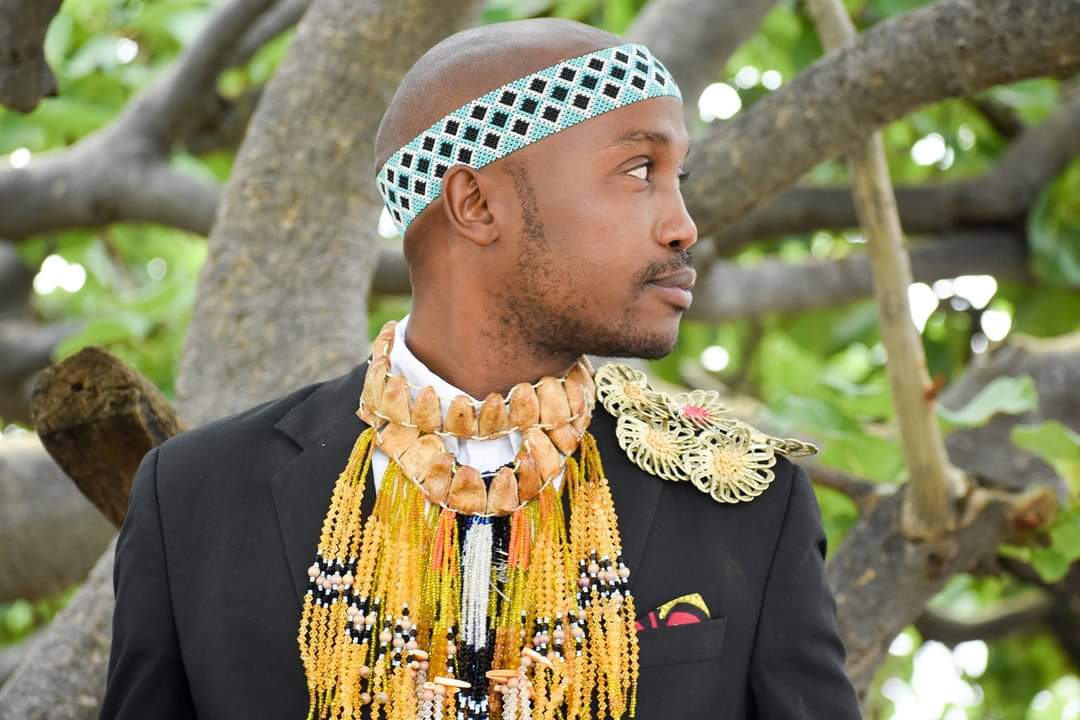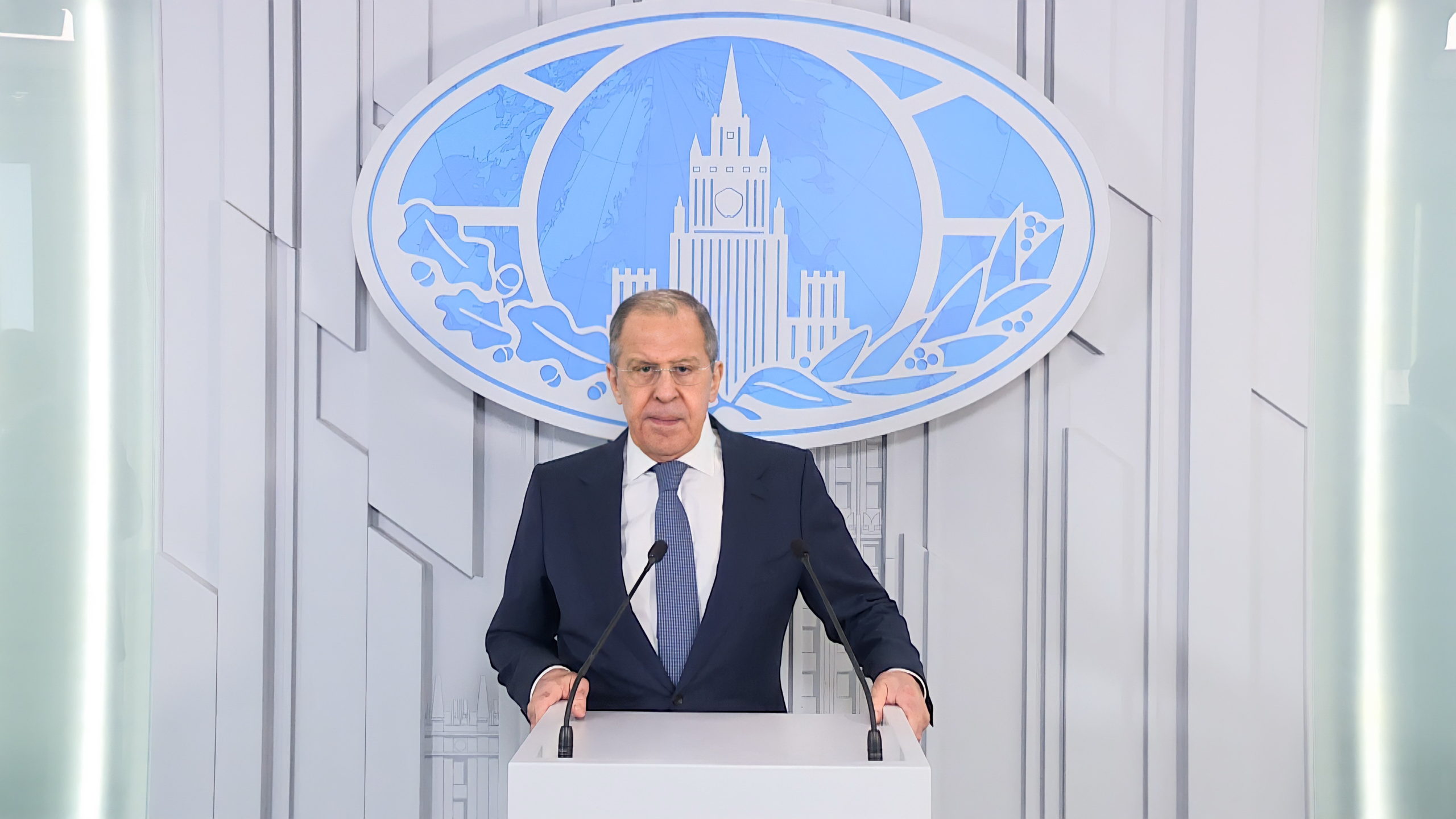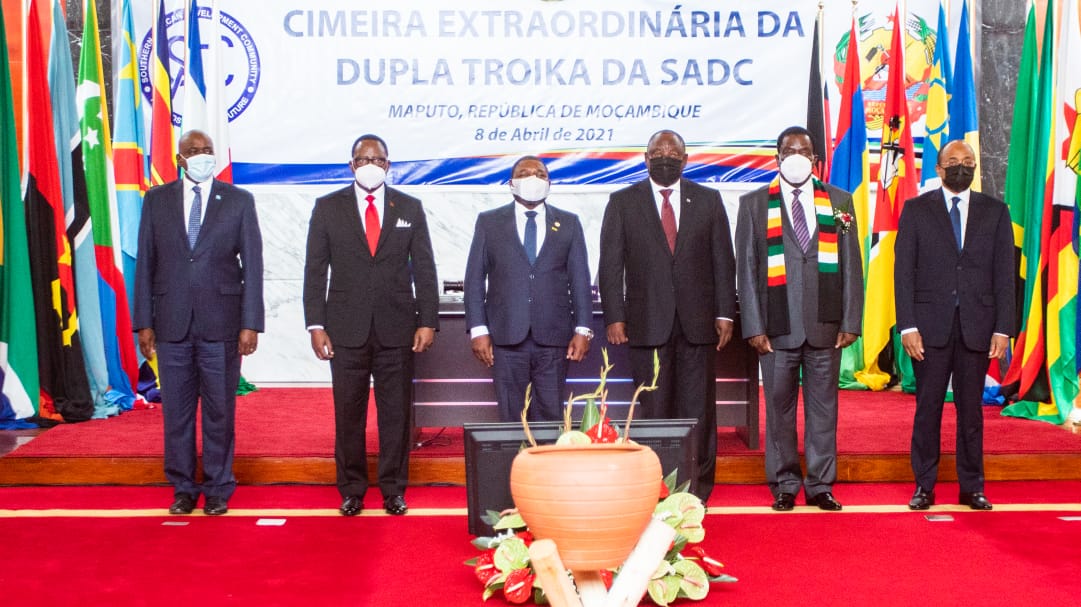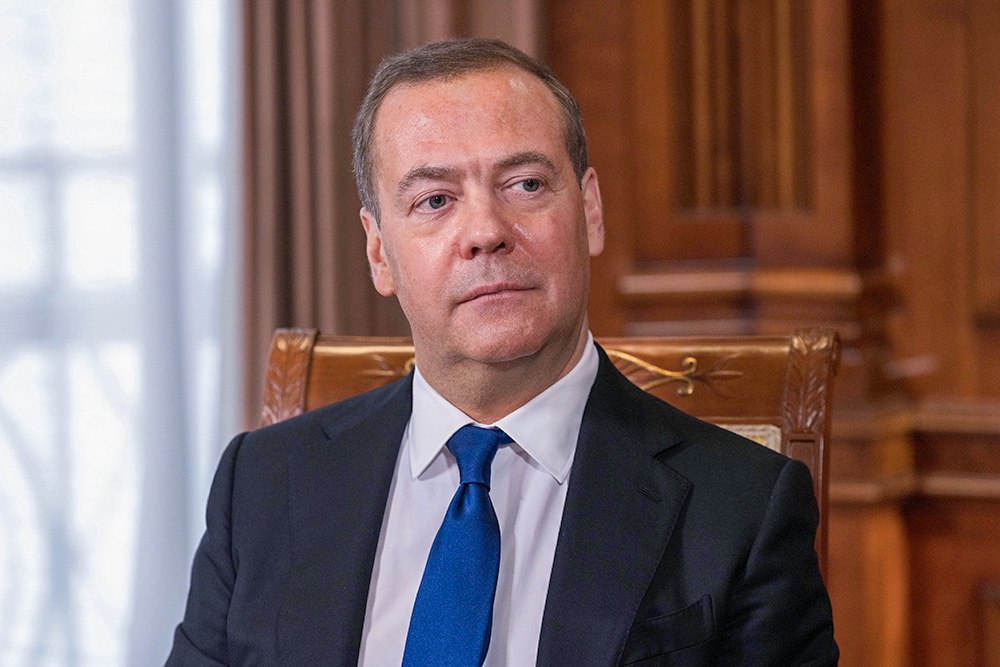
Dmitry-Medvedev.jpeg
by Dmitry Medvedev*
Neocolonialism: Old threats in a new era
In February 2024, a forum was held in Moscow for supporters of the fight against modern neocolonialism practices. This forum, called For Freedom of Nations, was organised by United Russia. Around 200 representatives from more than 50 countries took part in the event, whose main outcome was the establishment of a global anti-neocolonial movement, For Freedom of Nations, which will fight to eradicate modern practices of exploitation and hegemonism.

The meeting starkly demonstrated the urgent need to drastically intensify cooperation among all progressive forces against neocolonialism, which hinders many countries from embarking on a path of steady and just development. Neocolonialism is a long-standing and complex problem that requires a special approach and, most importantly, collaborative efforts to resolve.
Neocolonialism has long been a challenge in human history. The term was firmly established in the mid-20th century to describe the strategies employed by former colonial powers to contain the development of younger nations that had recently gained formal independence. These strategies were implemented in order to compensate for the metropoles’ own losses caused by de-colonisation.
There is brazen interference in the affairs of independent states, which, unfortunately, still continues in various forms. Despite humanity’s persistent efforts to eradicate neocolonialism, the Western world vehemently resists it.
It aims to transition from isolated and national to global neocolonialism – a system of unequal economic and political relations imposed by Western countries on the rest of the world, a system that rests upon their military power, Western capital, international financial organisations and multinational corporations (Anatoly Gorelov. From the Colonial System to Global Neocolonialism. 2014. No. 2, p. 60). The former colonial powers persist in exploiting dependent countries, enhancing their own comfort through the humiliation and oppression of others – albeit employing more sophisticated tools and methods. This is not a new phenomenon. Consuetudo est altera natura, or “Habit is second nature.”
I will cite just a few figures that eloquently describe the political component of neocolonialism. According to experts (American experts, for all their bias), between 1946 and 2000, the United States interfered in elections in other countries more than 80 times. Since 1945, there have been more than 50 attempted coups and military interventions (Dov H. Levin. Partisan electoral interventions by the great powers: Introducing the PEIG Dataset. Conflict Management and Peace Science, 2019, Vol. 36(1), pp. 88-106; William Blum. Overthrowing other people’s governments: The Master List. URL: https://williamblum.org/essays/read/overthrowing-other-peoples-governments-the-master-list).
One of the primary tools that the neo-metropolises are using to accomplish their goals are unilateral sanctions that run contrary to international law. Of the 174 cases of restrictive measures applied in the 20th century, the United States was responsible for 109; in 80 cases, they sought to change the policies of undesirable states (Haufbacher G., Shott J., Elliott K., Oegg B. Economic Sanctions Reconsidered, 3rd edition. Peterson Institute for International Economics, 2009, p. 248). In fact, America has become a global sanctions neo-metropolis. In its activities, Washington makes extensive use not only of primary sanctions, but also secondary sanctions (based on the principle of extraterritorial jurisdiction), seeking to undermine third countries’ foreign, trade and economic policies, thereby openly violating their sovereignty.
Below are a few examples of the consequences of these illegal restrictive measures. As of October 2023, the total damage to the Cuban economy from the embargo imposed in 1960 amounted to $159.8 billion. During the period of US unilateral restrictions against Iran in 1984-2000, the average annual cost of those sanctions was $80 million (Sanctions related to Iran//The White House official press-release. Fact-sheet. 31.07.2012). Between 2006 and 2012, during the period of multilateral sanctions, the annual toll on Iran was $5.7 billion (O.V. Komshukova, Sanctions against Iran: Goals and Consequences. Economic and Social Problems of Russia. Social Factors of Economic Growth, Moscow, INION RAN, 2016, No. 2-11). Over the seven years since the first sanctions were imposed on Venezuela in 2015, they have caused losses of $642 billion to the Latin American country’s GDP, as President Nicolas Maduro said in his annual address to the nation in January 2024 (Maduro called US sanctions economic genocide, RIA Novosti, January 15, 2024).
By doing this, the United States blatantly disregarded the 1927 judgement by the Permanent Court of International Justice, which highlighted the importance of respecting the sovereignty of other states in the legal context and pointed out that “the first and foremost restriction imposed by international law upon a State is that, failing the existence of a permissive rule to the contrary, it may not exercise its power in any form in the territory of another State” (Permanent Court of International Justice. The Case of S.S. Lotus (France v. Turkey). Judgement. Publication of the Permanent Court of International Justice, pp.18-19). Similarly, the United States acted contrary to the 1965 UN General Assembly Declaration on the Inadmissibility of Intervention in the Domestic Affairs of States, the 1970 UN General Assembly Declaration on Principles of International Law concerning Friendly Relations and Co-operation among States, and Resolution 27/21 of the UN Human Rights Council, dated September 26, 2014, which says that unilateral coercive measures and legislation are contrary to international law, international humanitarian law, and the UN Charter.
Washington’s attempts to find a justification for its aggressive and illegal actions in the broad interpretation of the territorial principle do not stand up to scrutiny. (When hearing the case of The Republic of Nicaragua v. The United States of America, the UN International Court of Justice clearly demonstrated that it was against the broad interpretation of actions that constitute a threat to national security. During the interpretation of the term “essential foundations of security,” it was established that US claims about Nicaragua’s alleged attempts to overthrow the governments of neighbouring states that went on for two years were not sufficient to incur the exception since the United States had not proved that Nicaragua’s policy constituted a threat to the “essential security interests.”)
In this context, Judge Jeffrey Meyer (a judge of the US District Court for the District of Connecticut, a Senior Counsel to the Independent Inquiry for the UN Oil-for-Food Programme in Iraq in 2004-2005, a professor of law at Quinnipiac University School of Law, and a Visiting Lecturer in Law at Yale Law School) pointed out that “the United States itself is prone to exaggerated claims that secondary sanctions measures can be justified by the protective or effects jurisdictional principles, even when these measures aim to redress <…> conduct that occurs in distant lands and that has no real prospect of jeopardising the safety of or causing any substantial effect in the United States.” (Meyer J.A. Second Thoughts on Secondary Sanctions//University of Pennsylvania. Journal of International Law.Vol.30.Iss.3., p. 909).
In fact, this can be described as attempts to destroy entire countries or as quasi-genocide. Nevertheless, the masterminds of these sanctions have not been called to account.
Western countries have not only been obsessed with the idea of political control over the rest of the world but also with domination on the international stage. In the second half of the 20th century, Latin American and European economists, such as Raul Prebisch (Argentina), Theotonio dos Santos and Fernando Henrique Cardoso (Brazil), Andre Frank (Germany) and Gunnar Myrdal (Sweden), shaped the dependency theory, which proved that there is a direct connection between the underdevelopment of Third World countries and the prosperity of advanced capitalist countries. Their works showed convincingly that the exploitation of underdeveloped nations by advanced nations was a major obstacle on humanity’s path towards progress (Baran, Paul A. The Political Economy of Growth. Moscow, 1960, p.53). According to calculations, the West drained over $62 trillion worth of raw materials from the Global South countries between 1960 and 2018 (Hickel J., Sullivan D., Zoomkawala H. Plunder in the Post-Colonial Era: Quantifying Drain from the Global South Through Unequal Exchange, 1960-2018. New Political Economy, 26(6), pp. 1030-1047).
There is another example from our present-day reality. I am referring to Charles de Gaulle’s foreign policy, which consisted of ensuring France’s national independence and greatness. “My aim, then, was to disengage France, not from the Atlantic Alliance, which I intended to maintain by way of ultimate precaution, but from the integration realised by NATO under American command; to establish relations with each of the States of the Eastern bloc, first and foremost Russia, with the object of bringing about a detente followed by understanding and cooperation <…>, to do likewise, when the time was ripe, with China; and finally, to provide France with a nuclear capability such that no one could attack us without running the risk of frightful injury.” – Gaulle Ch de/ Memoires d”Espoire. Le Renouveau 1958-1962. P., 1970, p. 284. This included France’s famous move to withdraw from NATO’s military command in 1966. France would have never achieved this goal without access to the free resources it received from the French-speaking African countries.
France succeeded in achieving the desired outcome by imposing a monetary and financial framework on its former African colonies, making them fully dependent on the Fifth Republic, which assumed the role of a neo-metropole. They did it by issuing the CFA franc as an element of the neo-colonial monetary system for controlling African economic policies. France has been using the euro for over 20 years now. However, it remains a dominant power in the franc zone, since there are still 14 countries in West Africa using the CFA franc, which is pegged to the European currency.
African researchers argue that this currency deprives their countries of the ability to use their domestic currencies and financial assets for their own development without facing external restrictions. It is also an obstacle to their economic and monetary sovereignty. It is for this reason that the present-day neo-Napoleon from the Elysee Palace constantly emphasises his adherence to Charle de Gaulle’s ideas and views perpetrating this neo-colonial monetary bondage as a vital necessity (Pascal Boniface, Why the Legacy of De Gaulle and Mitterrand Still Matters for the French Public Opinion, Valdai, March 15, 2021). This is the only way he can succeed. This means that Paris will seek to retain its foothold of Africa’s currency market for as long as possible.
In order to preserve its geopolitical presence in various parts of the world, the West relies on the so-called debt neo-colonialism. One of the masterminds of Pan-Africanism, and a prominent government leader of Burkina Faso, Thomas Sankara, warned about this danger back in 1987, when he said: “Debt is neo-colonialism, in which colonisers evolved into technical facilitators, <…> which amounts to an astute effort to conquer Africa (Discours de Thomas Sankara sur la dette, 29 juillet 1987. Youtube. URL: https://www.youtube.com/watch?v=WFaUaatu8T8). How can we talk about genuine freedom for a country if it lacks economic independence and is doomed to be guided by its lenders in the decision-making process?
The neo-colonial powers are using financial institutions under their control and extensively exploiting the difficult socioeconomic situation in many countries of the Global South to induce them to borrow at interest rates that are higher than those offered to the so-called golden billion countries. According to the UN Global Crisis Response Group on Food, Energy and Finance, countries in Asia and Oceania borrow at an average rate of 6.5 percent; Latin America and the Caribbean, at 7.7 percent, and Africa, at 11.6 percent. At the same time, borrowing costs for Germany as low as 1.5 percent, and for the United States, 3.1 percent (A world of debt. UN Global Crisis Response Group. July 2023., p.10 URL: https://www.unctad.org/publication/world-of-debt).
But perhaps the most eloquent fact that brings the problem into focus is that 45 countries spend more on servicing external debt than on healthcare (IBID). In other words, many nations have to sacrifice decent living standards for their citizens and even their future to satisfy the appetites of ruthless usurers.
Neocolonialists are also eagerly profiting from humanitarian assistance projects, taking the last piece of bread from poor countries without even a twinge of conscience. Take, for example, the situation with the distribution of Ukrainian grain under the Black Sea Initiative, which was proposed to help food-deprived states in Africa and Asia. As a result, the poorest states received only about 3 percent of the total stock of 32.8 million tonnes (Foreign Ministry statement on the Istanbul agreements. July 17, 2023. URL: https://www.mid.ru/ru/foreign_policy/news/1897157/?lang=en).
Unfortunately, neo-colonial powers are not going to stop there. They now seek to control not only the wallets and health but also the mindset of the inhabitants of the rest of the world. It appears that they have not kept their hands off the moral codes and rules of conduct society had been honing for centuries. Even most religions have been tarnished and perverted. Washington and its satellites are making considerable efforts to revise the fundamentals of Christianity and Islam to suit their own interests, and then relentlessly spread them around the world presented as some modernised religious teachings. That is, they are making full use of neocolonial practices to attract millions of people to their newfangled perverted cults. The main goal they are trying to achieve is to sever the links between generations, where religious traditions are important to maintain continuity.
Ideological colonialisation in its various forms and aspects poses a serious danger. Pope Francis believes that it brings economic aid under the same umbrella with imposing alien ways of thinking on other cultures, which paves the way to confrontation. The Pontiff was right in saying that “subjugating peoples by force or through cultural and political penetration is to be considered a crime.” He went on to call for an end to neocolonial practices and their manifestations in the forms of racism and social segregation as soon as possible (Pope: Modern neocolonialism is a crime and a threat to peace, Vatican News, April 1, 2023).
Neo-colonial thinking will always prevail over truth in the minds of Western leaders. This is the axiom we must realise. In fact, there are multiple examples in this regard. Today, there is a serious debate in the Netherlands on whether to withdraw the official apology by the Kingdom’s government regarding the Dutch war crimes against Indonesians during their 1945-1949 Independence War. Human rights are only for the chosen ones, it seems, while others are left with efforts to whitewash the violent past of the Dutch East Indies.
Great Britain continues to play an active role in spreading neocolonial practices. It spent several centuries extracting resources from its numerous overseas colonies. Today, London is intent on benefiting from what amounts to delayed-action mines it laid during that time. In particular, this includes imposing its legal system on so many countries, and forcing them to use its judicial mechanisms by treating almost all disputes around the world as falling under its jurisdiction. They have been justifying their efforts to penetrate other judicial systems by falsely asserting the universal nature of UK law, as well as the by talking about the impartiality and professionalism of British lawyers and barristers. Of course, nothing can be further away from the truth. Therefore, we must invest more time to make this British neocolonialism a thing of the past by improving the performance of national judiciaries and creating independent international courts.
Neo-metropolitan powers have also been targeting certain countries in Latin America, Asia and Africa with their disruptive efforts in order to control their natural wealth, including critical minerals. They focus on gaining unrestricted access to lithium, graphite, nickel, cobalt and rear earth deposits they need for transitioning to a low-carbon economy. While pretending to care about the environment and climate change, they are basically pushing the narrative of a green/eco-friendly neocolonialism that primarily benefits the collective West. Wealthy countries are forcing countries across the Global South to act in a hasty and uncalculated manner in order to preserve their environment, while completely disregarding centuries-old customs and traditions in agriculture, water use and minerals extraction. Our partners have openly sided with what they call “regulatory imperialism” which, in fact, amounts to neocolonialism, including regarding the destruction of forests and other major challenges (Gayatri Suroyo, “Indonesia accuses EU of “regulatory imperialism” with deforestation law”, Reuters, June 8, 2023).
To preserve its “elitist” (or, if we call things for what they are, parasitic) existence, the self-proclaimed “golden billion” will stop at nothing, including artificially induced economic crises. It continues to stall providing loans through global development institutions, and to support pro-Western opposition parties. While doing this, the West is painstakingly imitating a mutually respectful dialogue, trying to create a favourable international environment for itself. In particular, this is how the Partnership for Atlantic Cooperation initiative, launched by Antony Blinken in September 2023, was presented to the public. The initiative is made to drag as many countries on Africa’s western coast into it as possible. With this sort of pseudo-democratic formats, Washington and its satellites are trying to reinforce their noticeably compromised influence, pull the countries on the content into the global Western agenda, and damage our links with our African partners.
The so-called Mattei Plan, presented after the Italy – Africa summit earlier this year, pursues the same goal. Ironically, the project of exchanging African natural resources for Italian loans with a total investment of 5.5 billion euros, that looks so ambitious (at least on paper), is a typical example of “friendly neocolonialism,” when pumping cheap resources for European industrial production is embellished with various PR campaigns (Fadhel Kaboub, “Is Italy’s $6 bln plan for Africa just PR-friendly neocolonialism?,” “African Arguments,” February 2, 2024). As the EU members’ national economies continue to sink, there will be even more such shameless attempts at “blinged up colonialism.”
The neometropoles are not forgetting about the IT industry, of course, especially since this industry largely determines the trajectory of human development at this stage. The neocolonisers are not trying to achieve anything new: their goal is to expand the digital gap between themselves and the rest of the world, to create conditions for their IT corporations to strengthen as monopolies. They want to silence anybody whose views oppose pro-Western beliefs. People like Raul Castro and Ali Khamenei have already become victims of censorship. I myself had to face discrimination when Twitter (now X) restricted one of my posts in 2023. Allegedly, accounts were blocked in response to “violating platform policy.” However, American senator Lindsey Graham (on the Russian list of terrorists and extremists) used his page on Facebook (owned by Meta, recognised as an extremist organisation and banned in Russia) to call for getting to and destroying the Iranian oil processing industry, but did not attract nearly as much interest from the “morality police” at Meta (recognised as an extremist organisation and banned in Russia). I cannot explain this paradox by anything other than double neocolonial standards.
Neocolonialism near Russian borders
For many years, it seemed that neocolonialism in all its unsavoury iterations and manifestations existed somewhere far away from our borders, in Africa, Asia or Latin America. But this is not the way things stand. The newly proclaimed colonial powers have been nurturing sky-high economic and political ambitions, while refusing to respect the recognised strategic borders of other countries (for more on this topic, see my article for Expert magazine: No 4(5) of April 15, 2024).
We must recognise that neocolonialism has long come as close as it could get to our national border. It started by taking Russia’s neighbours under its control, including by staging the so-called colour revolutions in Georgia and Ukraine. This effort transformed Tbilisi and Kiev into puppet regimes, headed by Mikheil Saakashvili – an alumni of a scholarship programme funded by the US Department of State, and Viktor Yushchenko, whose spouse is a former American official. The former unleashed an aggression against the people of Abkhazia and South Ossetia in August 2008, but Russia immediately demonstrated its resolve and firmness in countering this attack. In Ukraine, the 2010 presidential election was a moment of truth for Yushchenko – he received just slightly over 5 percent of the vote, a historical low for an outgoing president.
Nevertheless, despite these initial failures, the West persisted with its plans to subjugate our neighbours by focusing on transforming Ukraine into a bulwark for pursuing its neocolonial aspirations. The country lost its political agency following the February 2014 government coup, basically succumbing to external control. This has happened so many times around the world. It is obvious that fulfilling all the objectives of the special military operation is the only way to enable Ukraine to free itself from this neocolonial bondage.
The new colonial powers have now turned to other post-Soviet republics, including Armenia. The people of Russia and Armenia share centuries-old ties of friendship, sealed by their allied relations within the CSTO and the EAEU, only to become a sore in the eye for Washington and its allies. They invested a lot of effort in ensuring that this South Caucasian republic joins the Euro-Atlantic community. The fact that the Armenian capital is home to one of the largest US embassies in the world is not a coincidence. Emissaries from the United States, the EU and NATO have been visiting Armenia increasingly often to make all kinds of generous promises. It goes without saying that they have been promising Armenia wonders, but only in exchange for its complete loyalty. However, Armenia must understand that these promises are nothing more than cheese inside a neocolonial mousetrap. No one wants to introduce the people of Armenia into the select club. Just ask the neo-Banderites. Have they obtained the EU membership they wanted? No, and they will not get there in the foreseeable future. Will it ever happen? Take Georgia, which has displeased the United States and the EU with a recent law. What was the response? Well, sanctions, of course! The European Parliament adopted a resolution on strengthening EU-Armenia relations in March 2024, but it is just a worthless piece of paper.
A similar situation is arising in Moldova, a country that EU citizen and Harvard graduate Maia Sandu is now leading straight into neocolonial slavery, telling the same tall tales about its “bright” future. In reality, the most likely scenario of Moldova’s “European integration” will see it turning into a remote province on the northeastern fringes of Romania, one of the least developed states in Europe. The previous periods of Bessarabia’s occupation by the Bucharest regime, between 1918 and 1940 and then between 1941 and 1944, were marked by mass repressions and forced Romanianisation. It would be naïve to believe that this underlying attitude towards the Moldovan population has drastically changed.
Why should states fight neocolonialism?
The fight against neocolonialism is not an eternal confrontation for the sake of confrontation itself. It is primarily a progressive movement of states towards civilisational sovereignty, which is crucial in avoiding degradation and devastation in the 21st century. At the turn of the century, the most appalling prospect for a country was to be labelled a “failed state.” Today, the term “non-sovereign state” is becoming the worst stigma of weakness and inability to function as a political and economic entity, to exercise generally recognised public authority. Only fully sovereign countries that have independence in domestic and foreign affairs will be able to effectively counteract the deliberate efforts of the former metropolises to impose unequal economic and political deals on them.
Clearly, under these conditions, it is no longer enough to say the words that are ritualistically pronounced on March 21, the International Day for the Elimination of Racial Discrimination, no matter how true and commendable they are. It is imperative that we resolutely and consistently include the relevant anti-neocolonial narratives into the public agenda.
I am confident that the modern world provides the prerequisites for the consolidation of a broad group of nations that seek the completion of the decolonisation process and oppose neocolonial practices. This group could work on an inter-state consultative mechanism that would bring together national commissions to estimate the damage and expose the crimes committed during the colonial period.
This raises another lingering issue, which is as pressing as ever – it is imperative to complete the decolonisation process that began in the 20th century. Allow me to remind you of a list, approved by the United Nations Special Committee on Decolonisation, which includes 10 Non-Self-Governing Territories that continue to be administered by the United Kingdom; three administered by the United States; two by France and one by New Zealand. The countries of the Global South need to combine efforts to ensure that those “fragments” of the Western empires’ former greatness, artificially preserved after the collapse of the colonial system in the 1960s and 1970s, achieve true independence.
It is no less important that the Movement for the Freedom of Nations leave the door open as it works to achieve its far-reaching goals, being ready to align its efforts, in a variety of formats, with global and regional groups including BRICS and the SCO. For example, they could cooperate to implement anti-neocolonial initiatives to improve the developing countries’ financial security through a major reform of the International Monetary Fund and the World Bank. This is consonant with the ideas of financial independence promoted by BRICS.
Investigation of colonial crimes that do not have a statute of limitations should be placed at the forefront of this activity. It is necessary to consider the creation of a single public database (register) of crimes of the colonial period, as well as modern neocolonial practices, at the UN, and work out a scale to evaluate the damage caused by war crimes committed on their territory.
Neo-metropoles should be hit where it hurts the most, in their wallets, which they are filling largely by exploiting the rest of the world. We believe that the payment of compensations to the victims of neocolonial practices should be based on clear, legally considered and substantiated evidence. Political and diplomatic assessments must be complemented with a legal evaluation of their actions.
Our partners are already doing this. Back in 2014, 15 members of the Caribbean Community (CARICOM) adopted a 10-point plan for reparatory justice. Many of its provisions can be used for calculating colonial damage (CARICOM Ten Point Plan for Reparatory Justice. CARICOM official website URL: https://www.caricom.org/caricom-ten-point-plan-for-reparatory-justice). In November 2023, the African Union masterminded a Reparations Conference in Ghana, the homeland of Kwame Nkrumah, an outstanding leader of the African national liberation movement. Considering that 12 million Africans were sold into slavery (A Ghana reparations summit agrees on a global fund to compensate Africans for the slave trade. Associated Press, November 17, 2023. URL: https://www.apnews.com/article/accra-slavery-reparation-conference-08f10f0833359e9be57b74d6f6e983a8f), reparations for trans-Atlantic slave trade have been estimated at $100 trillion (Report on reparations for Transatlantic chattel slavery in the Americas and Caribbean. Brattle Group, June 8, 2023. URL: https://brattle.com/wp/content/uploads/2023/07/Report-on-Reparations-for-Transatlantic-Chattel-Slavery-in-the-Americas-and-the-Caribbean.pdf).
The “golden billion” will have to dig deep into their pockets to pay for their countries’ sins. The countries and private companies that have been raking in money from slave trade for decades should not only muster the courage to recognise responsibility for the historical injustice and systemic racism towards Africans. A deeper look at the history of mergers and acquisitions of contemporary financial groups and companies in banking and insurance will show that many of them originated in the 18th and 19th centuries, which means that their money reeks of colonialism. It is these groups and companies that must foot the bill by stipulating relevant payments in their budgets.
Special focus in this regard must be on the idea of reparatory justice proposed by the victims of colonialism. In particular, the second session of the UN Permanent Forum of People of African Descent advanced the initiative on establishing a specialised International Tribunal within the UN to address reparations in coordination with other UN anti-racism mechanisms (UN Permanent Forum on People of African Descent. Preliminary Conclusions and Recommendations/ Second Session, 30 May-2 June 2023, New York City, USA).
We wish the best of luck to our African and Latin American colleagues. Their success, including in establishing an anticolonial tribunal, will be a major step towards depriving the Global North of its domination and towards building a fair multipolar world order.
What will the world be like without neocolonialism?
It is clear today that the future belongs to strong and viable, ideologically integral and conflict-free regional structures. Within their boundaries, mutual understanding and trust between participants are considerably higher than between the great powers on the scale of the planet. These sorts of organisations and unions will become the growth locomotives and autonomous centres of global development with their own global agenda. They will take the lead in finally demolishing neocolonial governance schemes, and give hope for a better future to hundreds of millions of people on Earth.
One way to eliminate the social and economic dimensions of neocolonialism may be stronger coordination, by the global majority countries, of approaches to forming a completely new system of international relations based on the principles of respect and well-wishing non-interference. Solving these problems is a matter of the nearest future.
Multipolar globalisation, that is replacing, at a growing rate, the complete injustice of the monocentric Western universalism, will create an absolutely new dialogue paradigm. The foundation has already been built. During the year of Russia’s BRICS chairmanship, it is especially good to note that our country is full of resolve to continue executing the provisions of the Johannesburg II Declaration. BRICS and Africa: Partnership for Mutually Accelerated Growth, Sustainable Development and Inclusive Multilateralism, adopted at the summit in South Africa in August 2023. We hope that, through the joint efforts with our partners, we will create conditions for elevating cooperation within the BRICS ‒ African Union format to a qualitatively new level, building upon BRICS growing role in peaceful settling of conflicts and ensuring compliance with international law. Developing cooperation between the African Free Trade Zone and the EAEU also appears promising, along with other similar formats in trade and the economy.
We will be paying especially careful attention to a gradual transition from the conventional foreign aid schemes via government lines that rely on funds allocated by countries through the UN, the IMF and the IBRD, to a new type of international cooperation to assist development multilaterally – and, of course, with a wider involvement of private capital and funds of non-confrontational structures that the countries of the Global South can trust, including the New Development Bank.
Dynamic development of these geopolitical processes are particularly obvious as we watch how the Euro-Atlantists have found themselves stalled in trying to form a new system of relations with the Global South. The overwhelming majority of our strategic opponents have lost the gift they have had for centuries of creating a positive image of the future. Attempts by some reasonable Western politicians to understand the approaches of the currently emerging centres of power (and there are simply no more small players on the map, no matter how much some would like to continue ranking countries based on their significance) have been met with typical arrogance of the heavyweight bureaucratic apparatus in Washington and Brussels. Of course, they simply don’t have a choice. The arrogance, ideological dogmatism and self-complacency prevent the West from catching up with the rapid changes and realising the new role and place of no longer developing but developed and strong countries in the changing world. They come out deeply shocked at the “abrupt” unwillingness of the Global South to be in the wake of the Zelensky formula and break off their years-long ties with Russia, to join the sanctions frenzy of the White House and its satellites, or to ignore yet another escalation in the Middle East. The anti-neocolonial rhetoric is sounding louder. The Western liberal model has also lost its appeal.
A polycentric world order will be pragmatic and based on diversity rather than neocolonial dogmas. Economic stability will derive from the diversification of ties and the freedom of manoeuvre in contacts between macroregions based on the philosophy of the Non-Aligned Movement. There is no doubt that this format based on the vision of outstanding statesmen Jawaharlal Nehru, Gamal Abdel Nasser, Sukarno and Josip Broz Tito in the 20th century will ultimately be given a second lease on life, even if in a slightly different form, in the 21st century. The objectives we must strive for not only include the proliferation of the principles of peaceful coexistence and the rejection of military bloc confrontation in the new post-colonial era but also the creation of a new content for the Non-Aligned Movement itself, including by establishing its inter-party dimension.
For the freedom of nations
These processes are definitely facilitating the establishment of a new world order without sanctions, exploitation and lies. The anti-neocolonial movement should give a new meaning to the famous principle of unity in diversity, which is being applied in many spheres and must be spread throughout the system of international relations.
This is why the Movement for the Freedom of Nations, which United Russia has initiated on the basis of the Soviet Union’s decades-old traditions in fighting colonialism and its consequences, could become a gigantic step towards the consolidation of the world’s nations in the fight against neocolonialists.
The importance of the new movement is evidenced from the furious resentment it has encountered in the West, which rose in arms long before its constituent assembly to wreck the planned meeting. The neocolonialists used every method at their disposal to discourage our partners from attending the forum. They made lavish promises of financial and economic assistance and openly threatened them with restrictions. The United States went as far as to prohibit those who planned to attend the forum in Moscow to fly over US territory. But none of these methods worked, and the meeting in the Russian capital was a success.
The forum participants unanimously adopted a document on the most important current aspects of fighting neocolonial practices worldwide. We have also agreed to develop political, economic and cultural ties between Global Majority countries and to join efforts against interference in the affairs of sovereign states, the falsification of history, xenophobia, racism and neo-Nazism.
- Dmytri Medvedev is Deputy Chairman of the Security Council of the Russian Federation

